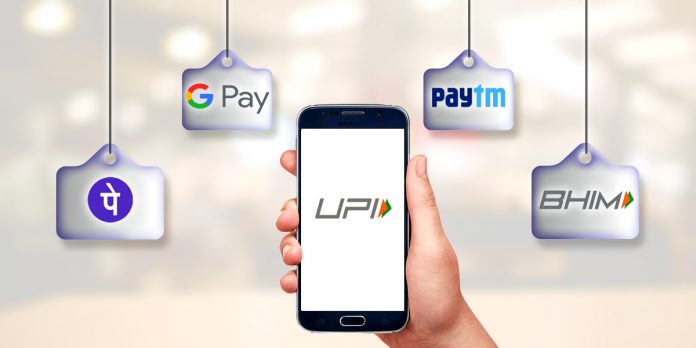This article is written by Khyati Basant, pursuing BBA LLB from Symbiosis Law School, NOIDA. This article contains a brief description of the Digital currency regulations in India.
Table of Contents
Introduction
The use of technology in India has boomed in the past few years. One of them is the digital currency. Digital Currency or “Cryptocurrency” or “Virtual Currency” (VCs) is used today in many parts of the world. Digital currency (digital money, electronic money, or electronic cash) is a balance or database held on the Internet, on an online computing archive, on digital archives, or a held-value wallet. Examples of digital currencies include cryptocurrencies, digital currencies at the central bank, and e-cash. These types of currencies may be used to buy physical products and services, but may also be limited to other groups, for example for users of an online game.
There are about 2,116 major cryptocurrencies as of today, with a combined $119.46 billion market capitalisation. Bitcoin arrives with a bang. So far this year, it has recovered 176 per cent from $3,742 on December 31, 2018, to $10,343 on July 22.
In 1983, David Chaum’s research paper introduced the idea of digital cash. In 1990, to commercialize the ideas in his research, he founded DigiCash, an electronic cash company, in Amsterdam. In 1998, it filed for bankruptcy.
The first widely used Internet currency, launched in 1996, was e-gold which expanded to several million users until it was shut down by the US government in 2008. E-gold mailing list members used the term “digital money” to describe pair-to-peer transfers in various instruments. In 1997, Coca-Cola conducted transactions using electronic transfers from vending machines. In 1998, PayPal began its USD-denominated operation.
Bitcoin was released in 2009 and marked the start of decentralized digital blockchain-based currency without a central bank, with no physical assets kept in reserve. Also known as cryptocurrencies, blockchain-based digital currencies proved immune to government attempts to control them, as there was no central agency or entity with the ability to switch them off.
What is digital currency?
Digital currency is a means of payment that occurs in online medium only and is not physical. With the aid of technology such as computers, smartphones, and the Internet, the digital currency can be transferred among entities or users. While similar to traditional currency, digital money allows both borderless transfer of ownership and instant transactions. Digital currencies can be used to purchase goods and services, but they can also be restricted to other online groups such as games or social networks. Often known as digital money and cybercash.
The digital currency still has a small consumer base and the regulatory system and digital currency tax practices are also changing. Cryptocurrencies and virtual coins are Digital Currency types. The technology needed to sustain the digital currency is still under construction and determination. Digital currencies, since transfers are made directly between payers and payees, will remove intermediaries, procedure phases, and infrastructure-related costs than conventional payment systems that can not circumvent banks or transparent houses. This will also aim to make the funds flow, smoother, and more straightforward.
There are other benefits associated with digital currencies, such as being able to make transfers quickly on time and lower transaction costs. Another way in which digital currencies can support organisations is by using them as a transport currency to eliminate/reduce the chance of exposures.
Unified Payments Interface (UPI) is a real-time instant payment system developed by India’s National Payments Corporation to facilitate interbank transactions. The app is controlled by India’s Reserve Bank, which operates by immediately moving funds on a mobile network between two bank accounts. UPI is designed to pass funds via Instant Payment Service. As a wireless payment system, it is available 24 * 7 hours a day and during public holidays. Unlike conventional mobile wallets, which take a specified sum of money from the customer and store it in their accounts, when a transaction is made, UPI withdraws and deposits funds directly from the bank account. It uses Virtual Payment Address (the bank’s unique ID), IFSC Code Account Number, MMID Mobile Number (Mobile Money Identifier), Aadhaar Number, or a Virtual ID for one-time use. A UPI-PIN (UPI Personal Identification Number created on the bank’s UPI app) is required to confirm each payment.
Government regulations with the right to privacy
In the modern world, one of the main problems is trying to protect your identity from the prying eyes of the state and non-state actors. In the context of modern environments, however, the importance of privacy and its security is becoming much more topical.
The fundamental right to privacy is guaranteed in the Indian constitution. This was confirmed in August 2017 by a ruling of the Supreme Court’s nine-judge judicial court in K.S. Puttaswamy (Retd.) & Anr. v An Indian Federation & Ors. (2015) case. This case was put before the Supreme Court following Mukul Rohatgi’s assertion in 2015 who was the then-Attorney General. He claimed that no legally protected right to privacy existed. The court’s nine-judge bench dismissed the assertion, which ruled that the constitution provides a right to privacy. The issue of privacy was discussed in this Supreme Court order, in the light of the Unique Identity Scheme. The question before the court was whether such a right is granted under the Constitution, and if it is, the root of this privilege provided that there is no explicit provision for privacy in Indian Law. India’s Attorney General argued that secrecy is not a basic right that Indian people are guaranteed. The Court ultimately left the question to be deliberated on a broader constitutional basis, since the earlier judgments denying the existence of the right to privacy were granted by larger benches than the cases where the right to privacy was accepted as a fundamental right. This led to an unresolved controversy which led the Court to refer the matter to a larger settlement bench. This was decided in the 2017 decision that the Constitution contained a constitutional right to privacy.
Why is the judgment important?
This judgment is so important since India has never had a dedicated privacy law. The Indian Cyberlaw, the Information Technology Act, 2000, did not provide adequate legal provisions for the protection and preservation of privacy. No wonder, India’s legislation on digital media has opted not to be a law on privacy and therefore, has no thorough or systematic guidelines to protect privacy. Privacy is now an evaporating term, in the sense of a web and social world. State and non-state players on their own will tend to circumvent the protection of internet consumers and the netizen culture.
The Supreme Court once again emphasized on the challenges of removing information from the Internet. The court has claimed that “the effect of the modern era makes knowledge permanent on the internet. People forget, but the internet doesn’t forget, it doesn’t make people forget about it. Any effort to erase details from the internet does not contribute to its full erasure. Hang with the footprints. It is, therefore, said that survival is the standard in the modern world, and overlooking a war. Hence, preserving and claiming a person’s privacy as a constitutional right is all the more important”.
Regulations for digital currency in India
The Reserve Bank has repeatedly warned consumers, investors and merchants of virtual currencies, including Bitcoins, about various dangers associated with dealing with these virtual currencies, through its public notices on December 24, 2013, February 01, 2017, and December 05, 2017. Given the related risks, it was agreed that organizations controlled by the Reserve Bank would not deal with VCs or provide services to assist any individual or organization with dealing with or settling VCs, with immediate effect from April 6, 2018. These services include holding accounts, logging, exchanging, settlement, clearing, lending against virtual tokens, accepting them as collateral, opening exchange accounts dealing with them, and transferring/receiving money into VC purchase/selling accounts.
Regulated agencies that already offer these services shall terminate the partnership within three months of the RBI circular ie date. June 6, 2018.
The press service of the Indian government announced the establishment of an interdisciplinary committee drawn from both the Reserve Bank of India and the Ministry of Finance, the Department of Financial Services and the Department of Economic Affairs, and the State Bank of India, the largest bank in the world. The government said:
- The committee will take stock of the current state of virtual currencies both in India and globally;
- Study existing global regulatory and legal frameworks regulating virtual currencies;
- Recommend steps to fix these virtual currencies, including customer security, money laundering issues
- Examine any other matter which may be relevant to virtual currencies.
It is not specified that the agencies involved have received regulatory permits, licenses, or authorisations for carrying out these activities. Digitally formed VCs are housed in digital/electronic devices called electronic wallets. Hence, they are vulnerable to losses arising from theft, password breach, login privileges misuse, malware attack, etc. Since they are not produced or exchanged by any designated central registry or entity, the loss of the e-wallet may result in the permanent loss of the VCs stored therein. Payments by VCs, such as Bitcoins, are made peer-to-peer without a central authority approved to control such payments. As such, there is no existing mechanism for resorting to consumer issues/controversies/charge backups, etc.
Internet and Mobile Association of India (IAMAI) V Reserve Bank of India
On 4 March 2020, the Supreme Court in the case entitled “Internet and Mobile Association of India (IAMAI) v Reserve Bank of India lifted the ban imposed on 6 April 2018 by the RBI which prohibited its controlled entities, such as banks, from trading in or facilitating virtual currency (VC) banking transactions.
In December 2013, Feb 2017 and Dec 2017, the RBI released cautionary advisories in the form of press releases to customers, holders, owners, traders, and like parties involved with VCs outlining the possible political, operational, legal, consumer safety and security-related risks associated with VCs.
The RBI subsequently released the circular challenged by IAMAI, shareholders/founders of crypto-asset trading sites, and actual crypto-asset traders who were the petitioners filed before the SC.
The plaintiffs argued that the RBI did not extend its mind when passing the circular. The circular was contaminated with malice in law because it was given in bad faith without the intention of protecting the public’s controlled institutions in general. The circular breached the constitutional right to exercise any career or to carry on any employment, commerce or company (Article 19(1) of the Constitution), because it does not satisfy the test of reasonableness/proportionality vis-à – vis the blanket ban put on the affected entities.
The SC, having considered the empirical structure and the parties’ disagreements, held as follows:
- Since some institutions accept VCs as valid payments for the purchase of goods and services, there is no escape from the conclusion that VC ‘s users and traders carry on an activity that falls squarely within the RBI ‘s remit.
- The SC held that VC has the potential to create a parallel monetary system that is perceived as a threat to the existence of a regulatory monetary system for a central authority. Thus the RBI has the necessary power to regulate or prohibit any such activity.
- Concerning the supposed infringement of the Petitioners’ fundamental right, the SC held that any limitation of the rights granted in Article 19(1)(g) of the Indian Constitution would pass the test of reasonableness. The Petitioners argued that because access to banking in any capitalist economy is the equivalent of delivering oxygen, restricting that access to anyone who carries on a trade that is not forbidden by statute is not a fair limitation and it is highly excessive.
- Consequently, though agreeing with the petitioners’ submissions, the SC held that the RBI circular was neither fair nor proportionate as RBI has not found any adverse impact of VC exchange activities on the way regulated entities (such as banks) function in the last 5 years or more. The RBI took the stance that VCs were not banned in the region.
Therefore, the SC maintained that the RBI Circle should be set aside on the field of proportionality, in the light of the above.
Conclusion
The VC/cryptocurrency industry also faces obstacles as a government panel recently submitted a draft bill, titled “Banning Cryptocurrency and Controlling the Official Digital Currency Bill, 2019,” along with a report to the government proposing, among other items, to ban the use, issuance, conversion, processing, production, disposal or selling of cryptocurrencies in the territory of India. This Bill is currently being considered by relevant government stakeholders and has not yet been tabled before Parliament. If and when the aforementioned Bill is passed, the Government’s position on the legality of VCs/cryptocurrencies in India is likely to be improved.
The draft bill defines cryptocurrencies as “any content, code or token having a digital value representation and usefulness in a business transaction, or acting as a value store or account unit.”
The Draft Bill proposes to prohibit the mining, selling, keeping, question or disposal of cryptocurrencies in India and imposes monetary and punitive penalties up to 10 ten years’ imprisonment for infringement.
The dilution of the chilling effect on innovation in digital currency and virtual currency innovation which was an unintended consequence of the circular will be a more immediate and welcome impact of the Judgement.
Although the SC’s decision provides a respite to the VC/cryptocurrency industry, which was indirectly affected by the prohibitions imposed on its regulated entities by the RBI (from transactions involving VCs), it should be noted that the SC (in this judgment) did not adjudicate the legality of VCs/cryptocurrencies that remain unregulated under Indian law.
References
- https://www.indialegallive.com/top-news-of-the-day/news/sc-virtual-currencies-not-yet-91787
- https://www.coindesk.com/indias-government-consider-new-digital-currency-rules
- https://vikaspedia.in/e-governance/digital-payment/bitcoin-a-cryptocurrency-digital-currency
- https://www.techopedia.com/definition/6702/digital-currencyhttps://www.news18.com/news/india/digital-india-celebrating-sc-verdict-because-it-needs-right-to-privacy-more-than-ever-1500745.html
- https://corporate.cyrilamarchandblogs.com/2020/03/virtual-currencies-cryptocurrency-in-india-a-new-dawn/
LawSikho has created a telegram group for exchanging legal knowledge, referrals and various opportunities. You can click on this link and join:
 Serato DJ Crack 2025Serato DJ PRO Crack
Serato DJ Crack 2025Serato DJ PRO Crack











 Allow notifications
Allow notifications


